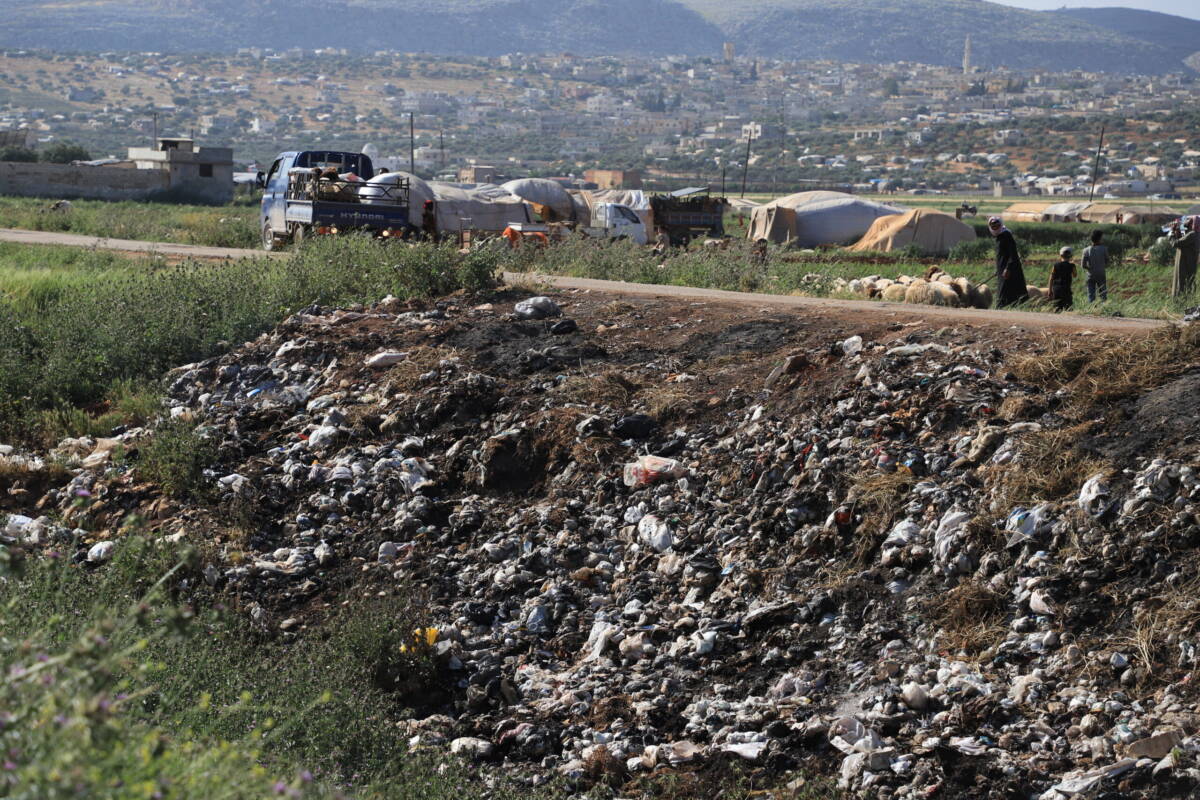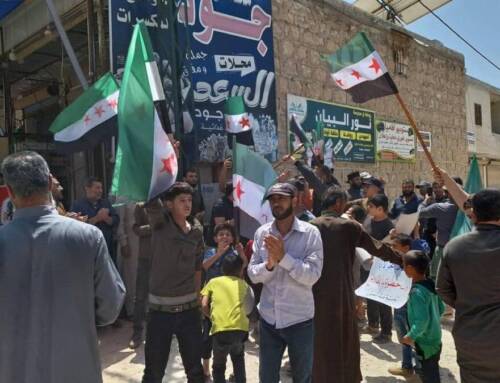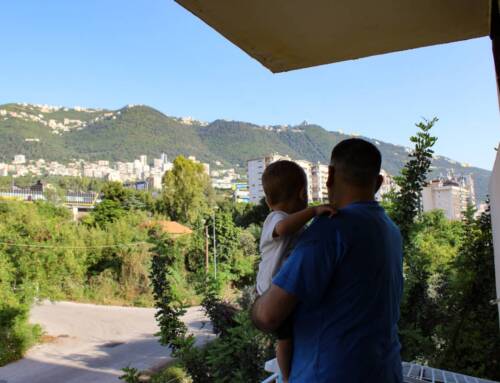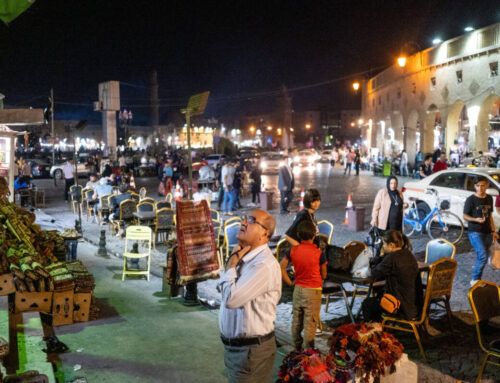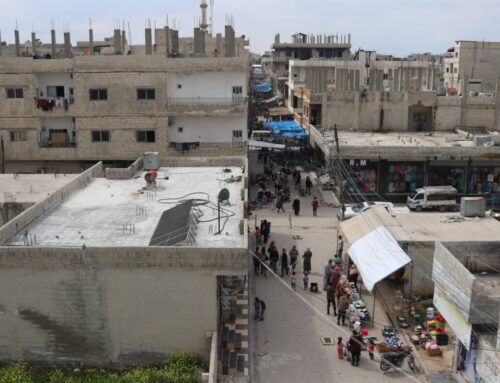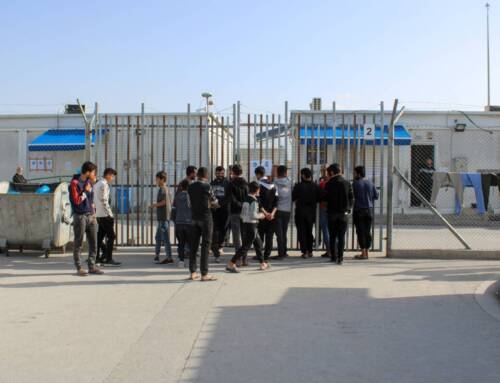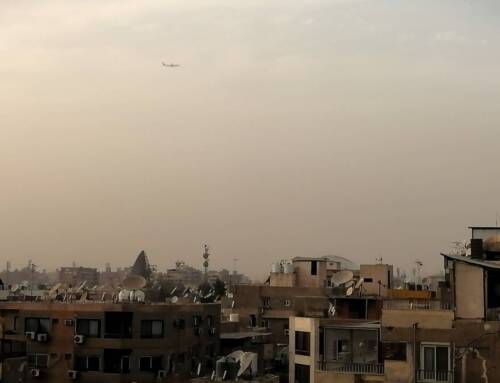Idlib camps face ‘harsh summer’ after losing sanitation services
Waste is piling up in 194 displacement camps in Syria's northwestern Idlib province after three humanitarian organizations stopped providing sanitation and water services at the start of the year. As summer approaches, some 200,000 residents fear the spread of disease.
7 May 2024
IDLIB — Two months after humanitarian organizations stopped providing sanitation and water services to the displacement camp where Taha al-Muhammad lives in Syria’s northwestern Idlib province, two of his young children contracted scabies.
It took another two months of treatment for the four-year-old and six-year-old to recover from the contagious skin infestation. With one now returning to the camp’s tent school, al-Muhammad worries his child could catch scabies again, and spread it to other family members. “These days, there are children chronically infested with [scabies],” he told Syria Direct.
At the start of 2024, three organizations shut down sanitation projects serving displaced people in northwestern Syria’s displacement camps—including the University District camp where al-Muhammad’s family lives. Residents lost access to sanitation, waste removal, water provision, health education and hygiene baskets.
Ihsan Relief and Development and BINAA for Development, organizations funded by the United Nations Children’s Fund (UNICEF), served 162 camps. WATAN, funded by the International Organization (IOM), served 32 camps.
In all, 194 displacement camps housing around 200,000 people lost sanitation and water services at the start of the year. This amounts to roughly 12 percent of the 1,633 camps spread throughout opposition-held northwestern Syria, according to the Syrian Response Coordination Group, a humanitarian nonprofit.
Four additional organizations partially stopped providing sanitation services to camps at the start of 2024: IYD International Humanitarian Relief Association, Syria Relief, Ataa Relief and the Turkish Red Crescent.
In the ensuing months, the 194 camps that completely lost sanitation and water services have been struggling as garbage accumulates and spreads and sewage pits fill with human waste. Safe drinking water is also now in short supply.
“Most of the time, you find garbage scattered for 10 meters around the dumpsters,” Sayyar Hassan Shahab, 54, the director of the University District camp in Idlib city, who is himself displaced from the Hama countryside, said. “It gets worse after trash-pickers rip the bags to extract recyclables, despite unsuccessful attempts to stop them, which leads to [garbage] being scattered in the streets, reeking.”
According to the Syrian Response Coordination Group, the level of humanitarian response by organizations operating in northwestern Syria fell by 47 percent—and around 40 percent in the camps specifically—throughout 2023, and continues to fall due to increased regional humanitarian needs and weak funding.
Read more: Syrians lose WFP lifeline as US slashes funding
Disease spreads
In the University District camp, like other camps where sanitation projects have been shut down, scabies and lice are spreading among residents, Shahab said. Patients with advanced cases of scabies cannot be treated within the camp, but are treated at a nearby clinic or the city’s hospitals.
Doctor Riad al-Muhammad, a public health specialist, warned that a buildup of waste and garbage, as well as a delay in removing it to dumps, creates a breeding ground for germs, insects and rodents. Scabies, mosquito-transmitted dengue fever, infections such as cholera and typhoid fever, as well as diarrhea and food poisoning can spread as a result, particularly as temperatures rise, he told Syria Direct.
As displaced camp residents seek solutions, some burn garbage to get rid of its unpleasant smell, which in itself can cause health problems such as “chest diseases and lung cancer,” the doctor added.
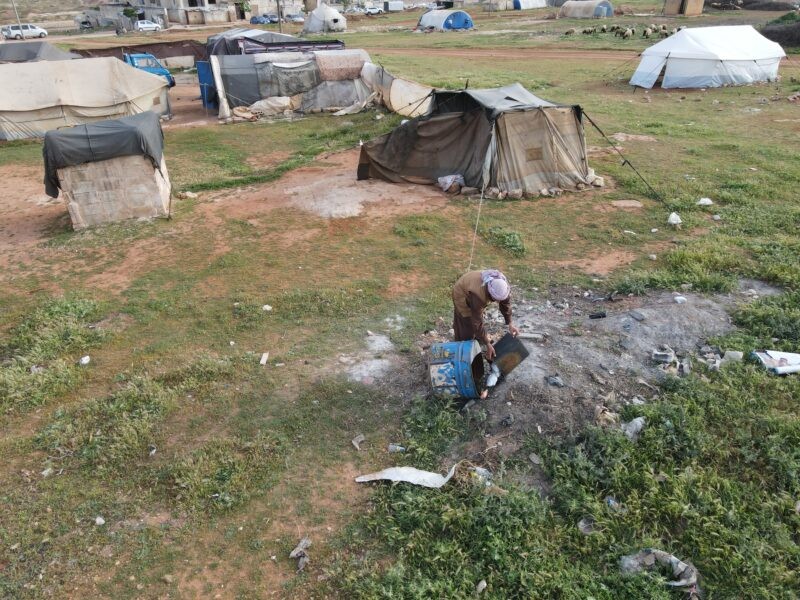
Taha al-Muhammad throws out garbage near his tent in the University District camp in Idlib city. Ashes on the ground are what remains of refuse previously disposed of by burning, 21/4/2024 (Abd Almajed Alkarh/Syria Direct)
This year, skin diseases and infestations are on the rise in northwestern Syria’s camps, more than 23 percent of which house affected residents.
Before stopping its support, the Ihsan organization supported 37 camps, including the University District camp where 345 families—around 1,950 people—live. Ihsan’s vehicles came to carry away garbage every two or three days, drained full sewage pits and provided around 35 liters of water a day per person. This amount was “enough for washing and drinking,” Shahab, the camp’s director, said.
Today, those living in the camp and others cut off from water and sanitation services fill their water storage tanks at their own expense. Filling each five-barrel (5,000 liter) water tank costs between 50 and 60 Turkish pounds (TRY), or around $2.
Buying water strains the pocketbooks of camp residents, who consume more of it in the summer months. However, drinking this water itself could entail “health risks,” since “its sources are unknown, and not sterile,” Shahab said.
“It can’t be helped,” al-Muhammad remarked. Displaced residents like him cannot afford to buy bottled water, and use trucked-in water to drink, cook and wash.
“Stopping the water supply has led to a decrease in the number of times children are bathed,” with some families bathing children once a week, the father of four said. He expects “this summer will be extremely harsh. People don’t have money to buy bread for their children, so how can they buy water?”
Since Binaa organization stopped supporting the al-Rifayn camp in northern Idlib, Suhaila Jumaa al-Daher, 25, has tried to reduce the amount of water she uses as much as possible, reusing water from washing dishes to mop the area in front of her tent, she told Syria Direct.
Al-Daher has also cut down on the number of times she bathes her three children to once every two days. Her oldest is five years old, and the youngest is seven months old. In past years, she would bathe them twice a day during the warmest months of the year. “All of them suffer from rashes from the lack of bathing,” she said.
A dumpster sits close to al-Daher’s tent, and “awful odors emanate from the accumulated trash,” she said. Since Binaa stopped providing trash removal services, she has noted “an increase in the number of rodents, insects and ants.”
Residents of al-Rifayn have taken it upon themselves to remove garbage and pump full sewage pits using private vehicles, the camp’s director, Hassan al-Sattouf, told Syria Direct. The Ministry of Local Development under the local Salvation Government, which coordinates between organizations operating in the camps, sent a vehicle to remove garbage from the camp just once since the start of the year, al-Sattouf added.
‘No justification’
Ihsan began supporting the University District camp when it was first formed in 2019, and provided sanitation services to the camp with grant funding the organization received from UNICEF and the UN in 2018. When it ended at the start of 2024, “they did not renew it, without providing any justification,” Oqba Abdulkarim, Ihsan’s field coordinator, told Syria Direct.
“Sanitation is one of the most important projects provided to the camps, since it concerns every aspect of hygiene,” Abdulkarim added. The organization’s sanitation work included providing sterile drinking water, removing garbage on a regular basis, constructing toilets and pumping waste from sewage pits. Ihsan also distributed hygiene baskets and had an awareness team working on hygiene education.
Abdulkarim stressed that no party in Idlib is capable of shouldering the burden of providing sanitation and water services to the camps “because of the enormous cost of these projects.”
Firas Kardoush, a public relations officer at the Salvation Government’s Ministry of Local Administration, said E-Clean, a waste management company operating in Idlib, has responded but cannot take on the burden permanently due to the cost and the increasing number of camps losing support.
Still, “the company, in partnership with the Ministry of Development and Human Affairs, launched a clean environment campaign during Ramadan targeting 188 camps that lost support,” Kardoush told Syria Direct.
If the situation does not improve, displaced people could be forced to leave the University District camp, al-Muhammad said. Ihsan field coordinator Abdulkarim agreed, saying that stopping support for water and sanitation (WASH) projects could amount to putting an end to the organized clustering of camps, leading “residents to turn to haphazard housing and stay away from organized gatherings.”
Moving to camps that still have services is not an option, because the latter “don’t have room for any increase in the amount of services,” Kardoush said.
When al-Muhammad’s children contracted scabies, he paid TRY 100 (around $3), for their medicine and appointments. But with the camp’s sewage pit flooding with waste and trash accumulating and spreading, he fears his family members could be infected “with diseases beyond my financial ability to treat,” he said. “We don’t have the money for food in the first place, to be able to pay for treatment.”
This report was originally published in Arabic and translated into English by Mateo Nelson.

